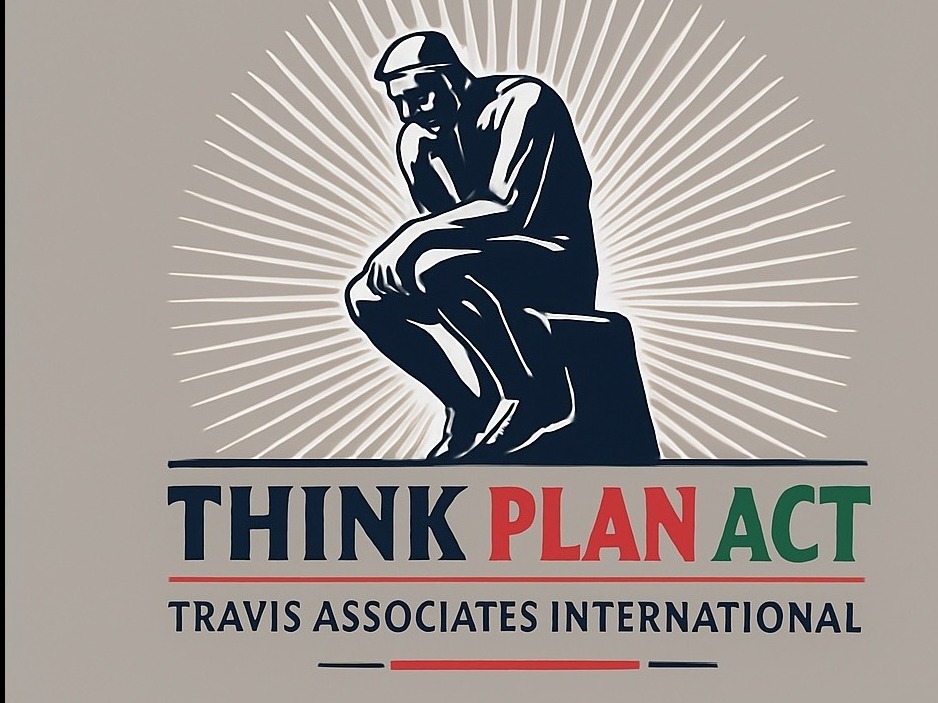
Did you know businesses using effective content marketing strategies experience conversion rates six times higher than those that don’t? In today’s crowded digital landscape, a powerful content marketing strategy is no longer optional—it’s the rocket fuel for ambitious businesses determined to outpace the competition. Whether you’re aiming to create content that attracts new leads, nurture existing clients, or skyrocket your sales, the right marketing strategies can transform your results. Dive in to unlock practical tactics, expert insights, and the actionable steps that will turn your content into your most valuable business asset.
Content Marketing Strategies: Surprising Facts That Will Transform Your Approach
- Did you know that businesses using effective content marketing strategies experience conversion rates six times higher than those that don’t? This guide unpacks how content marketing strategies can propel your sales to new heights.
Many businesses still underestimate the real impact of dedicated content marketing strategies. In fact, brands investing in a robust content marketing strategy report a staggering increase in conversion rates , improved brand awareness, and dramatically better lead generation. Imagine leveraging effective content marketing not just to get noticed, but to captivate your target audience at every touchpoint. Those who create content tailored to their customers’ pain points find they not only attract more potential customers but nurture stronger loyalty. In this article, you’ll discover the overlooked techniques and surprising tactics top brands use to outmaneuver their competition through content marketing.
If you want to experience these results, it's not enough to just publish a blog post once in a while or schedule random media content. A systematic approach—rooted in proven marketing strategy—is the secret weapon for business growth. By mapping out your content calendar, integrating data-backed decisions, and using social media content with purpose, you can transform your approach and see measurable results faster than you think.
How Content Marketing Strategies Drive Long-Term Sales Growth
“Content marketing is the only marketing left.” – Seth Godin
- Explore the foundational role of content marketing strategies in strengthening brand loyalty, increasing customer retention, and compounding business results.

Building an effective content marketing strategy isn’t just about short-term wins—it's about laying the groundwork for exponential sales growth. Every piece of content, from blog posts and case studies to viral social media campaigns, serves as a stepping stone to forge deeper relationships with your target audience. Over time, consistently providing valuable content helps cement your brand as a trusted authority. This not only increases repeat purchases but boosts customer retention and word-of-mouth referrals, compounding your results each quarter.
Customer loyalty starts with a content strategy that addresses the core pain points and needs of your potential customer. Whether you’re nurturing leads with insider tips, sharing behind-the-scenes stories, or demonstrating product benefits through video content, your audience develops a lasting emotional connection. Smart businesses measure outcomes—like improved conversion rates or increased email marketing open rates—to calibrate and optimize future campaigns for even better sales performance.
What You’ll Gain: Mastering Content Marketing Strategies for Maximum Impact
- Why content marketing strategies matter for revenue growth
- The most effective content types for your audience
- How to build a winning content calendar
- Ways to measure and optimize your content marketing strategy
- The critical role of social media and email marketing

By the end of this guide, you’ll know the essentials of crafting successful content marketing strategies that directly impact your revenue and business goals. You’ll learn to choose content formats—from in-depth blog posts to attention-grabbing videos—that resonate with your target audience and create content that drives long-term engagement. We’ll break down how to build, manage, and optimize your content calendar for seamless execution and stress-free campaigns. Plus, get actionable tips on integrating social media content and email marketing to multiply your reach and connect with customers at the right moment. Start mastering these actionable steps to watch your marketing strategy evolve and your sales explode.
Defining Content Marketing Strategies: What Are Content Marketing Strategies and Why Are They Essential?
What are content marketing strategies?
- Content marketing strategies refer to the systematic plans and approaches used to create, distribute, and measure content with the aim of attracting and converting targeted audiences.
Answer:
- Content marketing strategies combine targeted content creation, strategic distribution channels, and periodic performance analysis. The goal is to provide value, build trust, and guide prospects through the sales funnel while differentiating your brand from competitors.

Content marketing strategies are at the heart of any successful modern marketing strategy. They represent a practical blueprint—including ideation, creation, distribution, and measurement—designed to provide ongoing value at every stage of the customer journey. Instead of simply broadcasting promotions, effective marketing strategies focus on solving problems, educating, and engaging your audience through every piece of content .
At their core, these strategies are about more than just producing blog posts or videos—they’re about crafting a compelling narrative that guides potential customers from awareness to conversion. By leveraging a content marketing strategy that pinpoints where to reach your audience (think social media channels, newsletters, and video platforms), you boost your ability to attract leads, convert them, and nurture them into loyal advocates for your brand.
Five Pillars of Content Marketing Strategies: The 5 C’s of Content Marketing Explained
What are the 5 C’s of content marketing?
- The 5 C’s of content marketing—Clarity, Consistency, Creativity, Channel, and Conversion—ensure an effective approach to your marketing strategy.
Answer:
- Clarity: Clear messaging and objectives
- Consistency: Publishing regularly to establish trust
- Creativity: Unique storytelling and brand voice
- Channel: Selecting platforms where your audience engages
- Conversion: Guiding viewers to take action and fostering sales

To develop a successful content marketing strategy, keep the “5 C’s” at the forefront. Clarity ensures every blog post or video communicates a clear value proposition, directly addressing your potential customer’s pain points. Consistency means maintaining a steady publishing cadence; whether you’re pushing out weekly blog posts or daily social media content, reliability builds your authority and audience trust over time.
Creativity differentiates your content in the sea of sameness. Original ideas, unique visuals, and compelling brand stories will make your marketing strategy memorable. Channel selection is critical—you must know where your audience spends time, then tailor and optimize your content for those formats (think: Instagram for visuals, LinkedIn for B2B, YouTube for video content). Last, Conversion is the ultimate goal. Every piece of effective content should guide your audience to take meaningful action, whether it’s signing up for a demo, downloading a lead magnet, or making a purchase.
Core Content Marketing Strategies for Business Success
Overview of Four Fundamental Marketing Strategies
- Product, price, place, and promotion are often identified as the four core aspects of an effective content marketing strategy.
What are the 4 marketing strategies?
- Product: Showcase features and benefits through content
- Price: Communicate value and position competitively
- Place: Distribute content across selected platforms
- Promotion: Amplify reach through targeted campaigns
Answer:
- The four marketing strategies center on building content driven by your product, setting appropriate pricing messages, determining optimal distribution channels (place), and executing strategic promotions. Their integration ensures cohesive and impactful content distribution.
For any content marketing strategy to deliver, it must address the key pillars of classic marketing: product, price, place, and promotion. Product-driven content showcases what makes your offering unique, from in-depth guides to product walk-through videos that clarify benefits for potential customers. Pricing content gives context—compare plans, offer transparent explanations, or reinforce value to help your audience justify the investment.
Place is all about distribution—using a content calendar to plan the optimal moments and platforms for every blog post, case study, or video content campaign. Finally, Promotion covers strategies for amplifying your reach, like using paid media, partnerships, or influencer marketing to expand brand awareness. Orchestrate these elements strategically, and your content will drive action at every step of the sales funnel.
The Seven C’s Model: Advanced Content Marketing Strategies That Work
What are the 7 C’s of content marketing?
- The 7 C’s—Context, Content, Community, Customization, Communication, Consistency, Conversion—elevate your marketing strategy to the next level by integrating every touchpoint in your customer’s journey.
Answer:
- Context: Timely and relevant messaging
- Content: Valuable, informative material
- Community: Engaging and interacting with your audience
- Customization: Personalizing user experiences
- Communication: Crafting two-way dialogues
- Consistency: Keeping your brand message steady
- Conversion: Moving your audience towards purchase

Advanced content marketing strategies incorporate the “7 C’s,” providing a framework for seamless, end-to-end customer engagement. Context centers on delivering the right message at the right time—whether it’s breaking news, a trending industry topic, or a seasonal campaign. Content is the engine—everything you create should be valuable and actionable, leading the potential customer toward discovery, consideration, and eventually conversion.
The next stages— Community , Customization , and Communication —emphasize two-way interaction. Not only do you craft media content for your target audience, but you also invite feedback and personalize experiences. Consistency and Conversion keep your brand top of mind and nudge users down the funnel. Integrating all seven Cs ensures your content marketing strategy nurtures customer trust and prompts action, steadily building revenue over time.
Building Your Content Marketing Strategy: Step-by-Step Guide to Effective Content Marketing

1. Define Clear Objectives for Your Content Marketing Strategy
Start by setting measurable business goals for your content marketing strategy—whether that’s increasing website traffic, improving conversion rate, boosting brand awareness, or driving more sales-qualified leads. Clearly defined objectives focus your resources and help you evaluate the effectiveness of every piece of content.
2. Conduct Audience Research for Tailored Content Marketing Strategies
Understand your target audience’s pain points, interests, and online behaviors. Use surveys, analytics, and audience personas to ensure you create content that resonates with potential customers, solves their problems, and positions your brand as a go-to solution.
3. Choose Your Content Format: Blogs, Videos, Podcasts, and More
Diversify your content format to appeal to different preferences—some users love in-depth blog posts, while others consume video content or podcasts on the go. A successful content marketing strategy blends formats to maximize reach and engagement.
4. Develop a Content Calendar to Organize Your Marketing Strategy
A content calendar streamlines your marketing strategy by mapping out blog posts, video launches, and campaign milestones. This organizational tool keeps your team aligned, optimizes publishing frequency, and ensures no missed opportunities.
5. Distribute via Social Media Content, Email Marketing, and Other Channels
Distribution is just as crucial as creation. Share each piece of valuable content across the social media channels most frequented by your audience, employ email marketing for personalized outreach, and experiment with syndication or guest posting to expand your reach.
6. Optimize Your Content Strategy Using Analytics and Feedback Tools
Measure key metrics like website traffic, engagement, lead generation, and sales outcomes using analytics platforms. Analyze feedback, A/B test formats, and continually refine your content strategy to ensure every dollar invested contributes to your business goals.
Types of Content That Boost Results in Content Marketing Strategies
- Explore the most effective types of content—including blog posts, long-form articles, videos, infographics, whitepapers, podcasts, and case studies—within a content marketing strategy.
An impactful content marketing strategy incorporates various content types. Blog posts and long-form articles build search engine authority, helping potential customers find your brand organically. High-value eBooks, whitepapers, and case studies establish your expertise and help move readers down the funnel by addressing their concerns and questions.
Visual media content, such as infographics and video content, attract attention and explain complex ideas in accessible ways. Podcasts deliver thought leadership directly to your audience on their own schedule. The key is blending these types of content, aligned with your brand tone and business goals, to maximize reach and conversions.
Crafting Great Content: Secrets of Successful Content Marketing Strategy
- Discover the characteristics of effective content and learn how successful content marketing strategies foster engagement, trust, and conversions.

Great content is not just well-researched and visually appealing—it is purpose-driven and audience-focused. Every piece of content you create must serve a clear purpose: inform, persuade, inspire, or entertain. That’s why successful content marketing strategies always start with a deep understanding of your potential customer’s journey, pain points, and motivations.
Consistency in voice, branding, and quality fosters trust. Well-placed CTAs (calls to action) within your blog post or video gently guide users towards the next step—whether downloading more info, signing up, or making a purchase. And, by analyzing performance, the best content creators refine their marketing strategy over time, ensuring every piece of content maximizes ROI.
Integrating Social Media and Video Content Into Your Content Marketing Strategy
Leveraging Social Media Content to Amplify Brand Awareness
Social media is a powerhouse in any modern content marketing strategy. Use platforms your target audience frequents to spark conversations, share media content , and boost brand awareness . Strategic posting times, interactive polls, behind-the-scenes peeks, and user-generated content foster sincere engagement and increase your brand’s reach exponentially.
The Power of Video Content in Modern Marketing Strategies
Video content consistently delivers outstanding engagement and conversion rates across all industries. Optimized for short attention spans and mobile viewing habits, investing in videos—product demonstrations, expert interviews, animated explainers—helps brands dominate feeds and stand out. Consider live streams or story updates for immediacy and community interaction.
Case Study: Viral Success With Strategic Social Media Content
Consider a brand that leverages a single well-timed, emotionally resonant video across social channels. This video goes viral, resulting in a massive surge in brand awareness and a marked uptick in qualified leads. By tying viral moments back to their core content strategy, the company is able to nurture these new contacts through meaningful blog posts, follow-up emails, and exclusive content, converting viewers into long-term customers.

Harnessing Email Marketing as a Core Element of Content Marketing Strategies
Effective Tactics for Email Content to Support Sales Goals
Strategic email marketing is a non-negotiable part of an effective content marketing strategy. Personalize content, segment lists, and offer exclusive deals or insights to different customer segments. Tailoring your media content and calls to action to your audience’s real needs leads to higher open rates and direct sales.
List Building and Segmentation: Reaching the Right Audience
Grow your email subscriber list with irresistible lead magnets (like templates, free guides, or discount codes). Break your audience into targeted segments based on interests or stage in the buyer’s journey; send each group content that speaks to their motivations. Segmentation ensures every message has maximum impact and supports your business goals.
Measuring Email Engagement and Optimizing Your Content Strategy
Track open rates, click-through rates, conversions, and unsubscribes. Use this feedback to optimize your campaigns: adjust subject lines, tweak design, segment more precisely, and refine your content frequency, such as adjusting your content calendar or automating personalized follow-ups.
Developing a Content Calendar to Support Your Content Marketing Strategy
- A content calendar provides structure, organizes topics, ensures timely campaigns, and aligns your marketing strategy with key business priorities for maximum effectiveness.
| Date | Content Type | Channel | Goal | Responsible Party |
|---|---|---|---|---|
| 03/15/2024 | Blog Post | Website, LinkedIn | Lead Generation | Marketing Manager |
| 03/20/2024 | Video | YouTube, Facebook | Product Awareness | Content Team |
| 03/25/2024 | Email Newsletter | Email List | Retention & Upsell | Email Specialist |

A content calendar aligns your entire team around deadlines, campaign priorities, and publishing cadences. It’s also a powerful tool for ensuring variety in your types of content, maximizing seasonal opportunities, and maintaining a consistent brand presence across all marketing channels.
When used strategically, a content calendar eliminates last-minute rushes and gaps, keeps your audience engaged, and gives your marketing team actionable insights for future planning. This organization enables you to consistently deliver content that supports your broader business goals while honoring the specificity of your audience’s needs.
Content Marketing Metrics: How to Evaluate the Effectiveness of Your Content Marketing Strategy
- Review key metrics such as traffic growth, engagement, lead generation, conversion rates, and ROI to gauge the success of your marketing strategies.
Metrics are the compass for any content marketing strategy. Track website visits (traffic), average session duration, bounce rate, and which types of content are most popular. Analyze engagement metrics like social shares, comments, and likes to understand what truly resonates with your target audience.
Lead generation and conversion rates offer hard evidence of your strategy’s return on investment. Pair these with customer retention rates and revenue growth, and you can pinpoint which content types and channels deliver the best ROI. Routinely adjust your approach based on performance data: scaling up what works and pivoting from what doesn’t.
List of Tools and Resources to Enhance Your Content Marketing Strategies
- SEO platforms: SEMrush, Ahrefs, Moz
- Content tools: HubSpot, CoSchedule, BuzzSumo
- Analytics: Google Analytics, Hotjar
- Social scheduling: Buffer, Hootsuite

Utilizing the right tools elevates your content marketing strategy. SEO tools like SEMrush and Ahrefs identify the best topics, keywords, and competitor moves. Platforms like HubSpot and BuzzSumo streamline campaign management, from content creation to distribution. Google Analytics and Hotjar break down audience behavior, enabling next-level optimization.
Finally, plan and schedule social media content seamlessly with Buffer or Hootsuite. These resources help automate time-consuming tasks, monitor results in real-time, and give your marketing team freedom to focus on creating content that delivers tangible business outcomes.
Expert Insights: Quotes on Effective Content Marketing Strategies
"Marketing is no longer about the stuff you make, but about the stories you tell." – Seth Godin
"Behind every piece of ineffective content is an assumption gone unchecked." – Ann Handley
FAQs: Everything You Need to Know About Content Marketing Strategies
- How long does it take to see results from content marketing strategies?
Most businesses start seeing measurable results from content marketing strategies within three to six months, although this can vary based on industry, objectives, and commitment to consistency. Quick wins can occur from viral content or targeted paid campaigns, but long-term growth relies on ongoing optimization and regular content creation.
- What types of businesses benefit most from content marketing?
Content marketing is effective across virtually all industries, from B2B and technology companies to retailers, consumer brands, and service providers. Businesses with complex sales cycles, educational needs, or high-ticket products often benefit significantly from strategic, informative content that guides prospects through their decision journey.
- How is ROI measured for a content marketing strategy?
ROI is measured by comparing your investment (time, money, resources) against the outcomes (traffic, leads, sales, customer retention). Key measurements include tracking conversions, sales growth, lead quality, and cost per lead, all of which are tied back to specific content campaigns and distribution channels.
- What are the best platforms for distributing video content in a marketing strategy?
Top platforms for video content distribution include YouTube, Facebook, Instagram, TikTok, and LinkedIn for B2B audiences. Each platform has unique advantages and ad formats, so tailor your video style and message to fit the preferred consumption habits of your target audience.
Recap: Action Steps for Successful Content Marketing Strategies
- Define clear objectives for your content marketing strategy
- Know your audience and select the right types of content
- Leverage social media, email marketing, and content calendars
- Measure, optimize, and never stop refining your content marketing strategies
Want Explosive Sales Growth? Let’s Transform Your Content Marketing Strategies Together
- Ready to put these powerful content marketing strategies to work for your business? Let’s have a chat—call 908-641-9211 today and unlock your business’s next level!
To further enhance your understanding of effective content marketing strategies, consider exploring the following resources:
- “Go-To Guide for Content Marketing Strategies” ( victorious.com )
This comprehensive guide outlines six essential steps to build a robust content marketing strategy, including defining objectives, understanding your audience, conducting content audits, planning and creating content, distributing it effectively, and measuring its success.
- “10 Effective Content Marketing Tactics for 2025 and Beyond” ( semrush.com )
This article delves into advanced tactics such as leveraging short-form videos and encouraging user-generated content to enhance engagement and reach in the evolving digital landscape.
By integrating these insights, you can develop a content marketing strategy that not only attracts and retains your target audience but also drives significant business growth.
 Add Row
Add Row  Add
Add 




Write A Comment